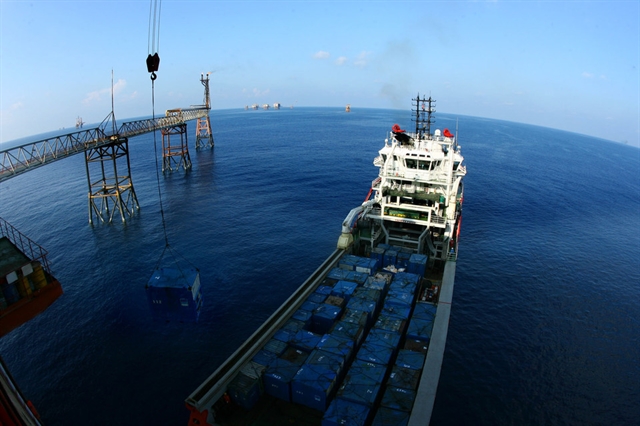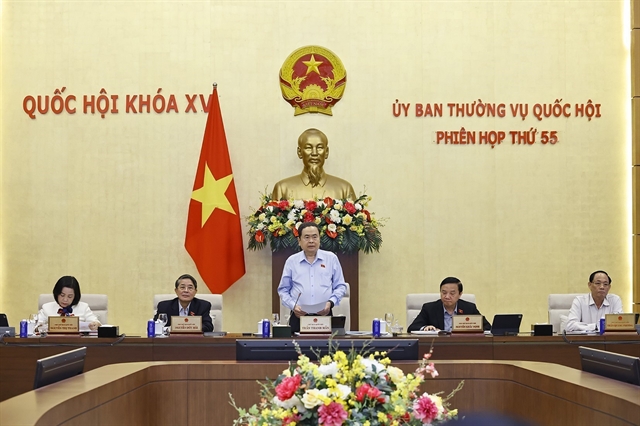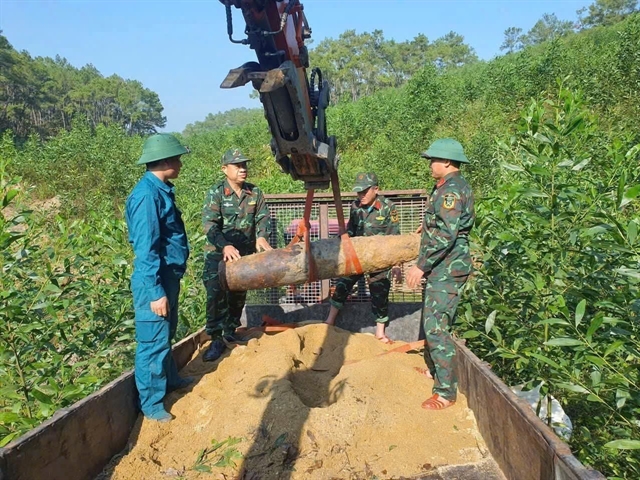 Expat Corner
Expat Corner
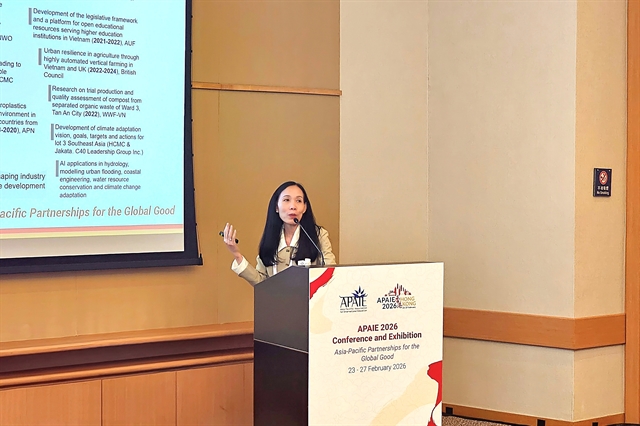
The German ambassador to Việt Nam, Dr. Guido Hildner, writes to Việt Nam News on Germany's National Day.
The German ambassador to Việt Nam, Dr. Guido Hildner, writes to Việt Nam News on the Day of German Unity and commemorating 10 years of Strategic Partnership between Germany and Việt Nam:
On October 3, Germans celebrate the Day of German Unity. They are remembering German reunification on October 3, 1990. This is a day of joy - even if this year it is overshadowed by the COVID-19 pandemic. The pandemic has had a major impact on life in Germany over the past year and a half. It's not over. Yet, thanks to the good progress of the vaccinations, everyday life has been gradually normalised in many areas. This gives hope.
The pandemic is a major challenge for society as a whole. The central task now is to shape the future. This affects the economy, but also many other areas. Climate change in particular is a topic that moves people in Germany. Therefore, there is consensus that the economic recovery after the pandemic should take place in an ecologically exemplary manner. Energy supply plays a key role. The goal is to rely on renewable sources. Renewable energies with wind and water power, photovoltaics and biomass already have a share of 46 per cent in the electricity mix. This should continue to increase. Germany will phase out nuclear energy by the end of 2022, and coal energy by 2038 at the latest. Germany wants to be climate neutral by 2045.
Like the pandemic, climate change is one of the major global challenges that a country cannot master alone, but only together with the international community. For that you need good and reliable partners. Germany is happy to have such a partner in Việt Nam. These days, both countries are celebrating the 10th anniversary of their Strategic Partnership. The partnership has developed continuously over these years and has proven itself during the pandemic. Both countries worked together and supported each other. At the beginning of the pandemic, Việt Nam helped Germany by donating mouth and nose masks. Germany returned the favour with medical material and vaccination doses, in the last two weeks alone with 3.45 million doses of AstraZeneca, of which 850,000 came via the COVAX mechanism and 2.6 million directly.
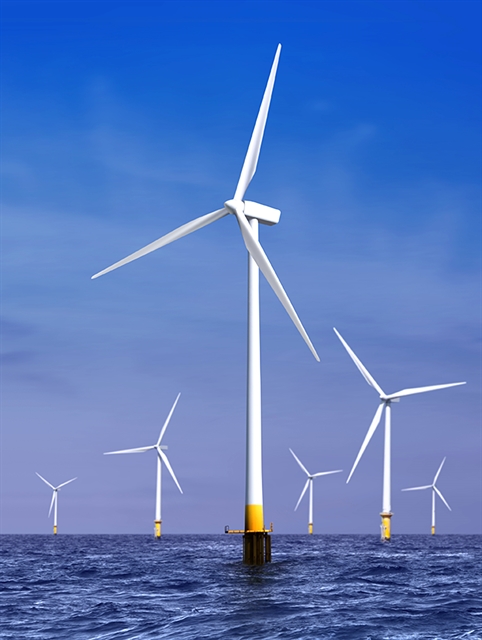
|
| An offshore wind farm located in the German North Sea. — Courtesy Photo of the embassy |
There are also good opportunities for cooperation between Germany and Việt Nam when it comes to the challenges of climate change, for example in the expansion of renewable energies in Việt Nam or in increasing energy efficiency. In the new strategy of German development policy, Việt Nam was classified as a global partner country. At the end of July, bilateral government negotiations on development cooperation took place, which, in continuation of the previous German commitment, agreed the issue of climate and energy as one of the focal points of future cooperation. Others are the environment and vocational training. For this purpose, Germany is providing Việt Nam with additional funds of over 140 million euro over the next two years. The Gesellschaft für Internationale Zusammenarbeit (GIZ) and KfW Bank operate representations in Việt Nam to carry out the projects.
Other important areas of cooperation are education and science. Several thousand Vietnamese are studying in Germany. German and Vietnamese universities cooperate in more than 160 projects. The German Academic Exchange Service (DAAD) plays an important role. In May, it established in Việt Nam one of four new global centres for health and pandemic prevention aiming at preventing infectious diseases and helping treat them. A beacon is the Vietnamese-German University in Bình Dương Province. In April 2021, the government agreement came into force, which puts the work of the university on a solid and sustainable basis. After all, promoting the German language is a focus of German educational work in Việt Nam, supported by i.a. the Goethe-Institute and the German Central Agency for Schools Abroad.
The German business community also stands by Việt Nam in the difficult time of the pandemic. Its presence has been maintained despite many problems. The companies react flexibly to the new situation and work with great commitment. This also applies to the two offices of the Delegation of German Business in HCM City and Hà Nội as well as to the German Business Association (GBA). Trade was able to develop during the pandemic. Bilateral trade in 2020 expanded 3.6 per cent to US$15.7 billion. This is due to an increase of the Vietnamese exports to Germany to $11.4 billion (+7.9 per cent). Certainly, the entry into force of the Free Trade Agreement between the EU and Việt Nam on 1 August 2020 has had a positive effect.
Questions of the rule of law and of values are also the subject of the bilateral exchange. For many years, our governments have conducted an intensive rule of law dialogue addressing various questions including human rights. Five of the six political foundations have their own representations in Việt Nam: Friedrich-Ebert-Foundation, Friedrich-Naumann-Foundation, Hanns-Seidel-Foundation, Konrad-Adenauer-Foundation, Rosa-Luxemburg-Foundation.
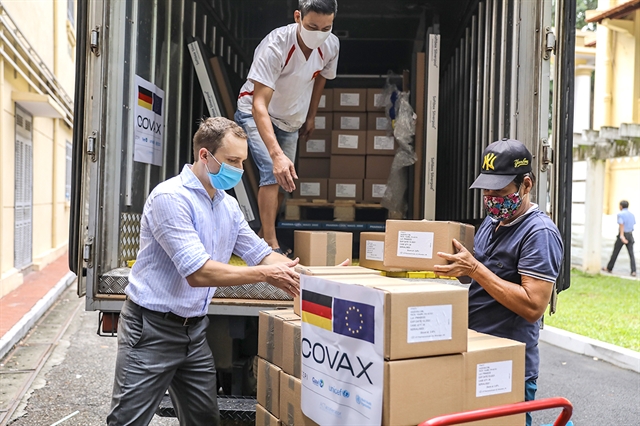
|
| The arrival of 850,000 AstraZeneca vaccine doses via COVAX as part of an overall German donation of 3.45 million doses in September. — Courtesy Photo of the embassy |
At the international level, Việt Nam and Germany share many interests. Both advocate multilateralism, the rules-based international order and respect for international law. They were the initiators of the Group of Friends of the United Nations Convention on the Law of the Sea (UNCLOS), which was founded in New York in July 2021 and which now has over 100 member states.
Relations between Germany and Việt Nam continued to develop during the pandemic. But there are also areas that have suffered. These are, for example, cultural activities, especially interpersonal contacts, since travel and personal encounters were not possible. The many German friends of Việt Nam are looking forward to the time when such encounters will be possible again. — VNS

